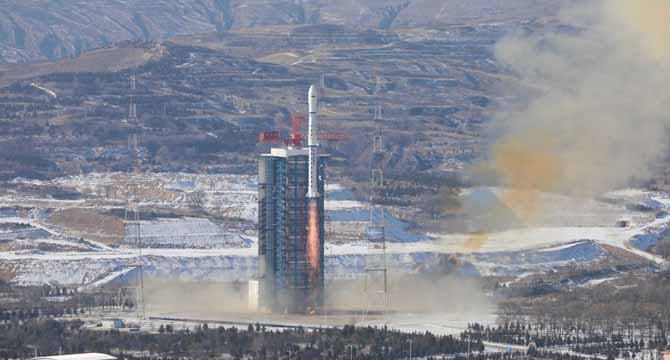BEIJING, April 18 (Xinhua) — Brazilian President Luiz Inacio Lula da Silva on Saturday rounded off his four-day state visit to China, during which leaders of the two countries reached more common understanding and mapped out a brighter future for bilateral ties.
Sharing extensive common interests, China and Brazil have always been upholding the principle of mutual respect, equality and mutual benefit in bilateral exchanges.
They support each other’s choice of development paths tailored to their own national realities and respect each other’s core interests. In 1993, Brazil became the first developing country to establish a strategic partnership with China, and in 2012 that partnership was upgraded to a comprehensive strategic one.
Fruitful results have been yielded after years of cooperation between the two countries in various fields.
China has been Brazil’s biggest trading partner for 14 consecutive years, and as China’s major invested country in Latin America, Brazil is the first Latin American country to hit a trading volume of over 100 billion U.S. dollars with China. In 2022, two-way trade stood at 171.35 billion dollars, showed data from China’s General Administration of Customs.
In a written interview with Xinhua shortly before his departure for his visit to China, Lula said “the value of our exports to China is greater than the sum of our exports to the United States and the European Union,” noting that “China is a great engine for the Brazilian agro-industry.”
Bilateral cooperation is expected to expand and deepen after the visit. The two presidents saw various bilateral cooperation documents signed on trade and investment, digital economy, scientific and technological innovation, information and communications, poverty reduction, quarantine, space and others.
Facing global changes of a magnitude unseen in a century, China and Brazil have been maintaining close communication and coordination in international affairs.
Both as developing countries with great international influence and important emerging markets, China and Brazil coordinate and cooperate within such multilateral frameworks as the United Nations, the World Trade Organization, BRICS, the Group of 20 and so on, working together to safeguard the interests of developing countries and steering the international order toward greater justice and equity.
From 2006 to 2022, the China-Brazil High-Level Coordination and Cooperation Committee held six meetings, pushing for continuous fruits in bilateral practical cooperation. During the visit, the two sides had decided to establish a sub-committee on environment and climate change within the framework of the committee.
The flourishing cultural and people-to-people exchanges across oceans contribute to advancing bilateral relations.
The exchanges between China and Brazil have been increasingly active in various fields including poverty alleviation and reduction, environmental protection, medical and health care, and culture and education.
Amid the COVID-19 pandemic, governments of the two countries at central and local levels and medical institutions witnessed close cooperation in epidemic prevention experience sharing, vaccine research and development and medical supplies, jointly protecting the lives and health of their people.
In response to Brazilians’ passion for the Chinese language and culture, China has established 14 Confucius Institutes in Brazil, the most among Latin American countries. Brazil also values and respects the Chinese people and their culture. It has set up a national festival to celebrate every August the arrival of Chinese immigrants to Brazil. The northeastern Brazilian city of Recife established the Chinese New Year as an official holiday in the city in 2022.
China-Brazil relations have great prospects, playing an important role in today’s turbulent world. It is believed that the bilateral ties will reach a higher level based on Lula’s visit to China, which will deliver greater benefits to people of the two countries and promote global peace, stability and shared prosperity.

